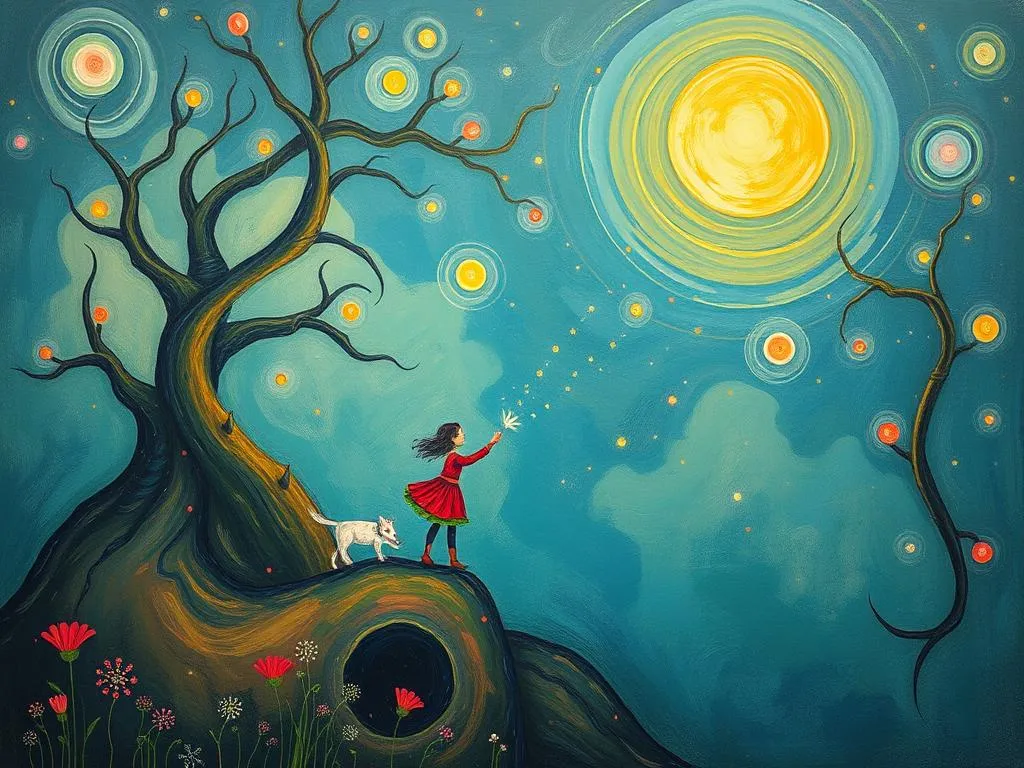
Introduction
Dreams have long been a source of fascination and intrigue, acting as windows into the subconscious mind. Among the myriad of dreams that people experience, those involving the Bhandari—a term often associated with a sense of heritage, familial bonds, and cultural identity—stand out as particularly rich in symbolism and meaning. These dreams can evoke feelings of fear, uncertainty, and ultimately, a journey towards self-discovery. They resonate deeply with those who feel a connection to their roots, grapple with their identity, or confront their past. This article delves into the intricacies of dreams involving the Bhandari, exploring their symbolism, variations, and potential real-life connections.
Symbolism and Meaning
To interpret dreams involving the Bhandari, it is essential to first recognize the various symbols that may appear within these dreams. The Bhandari represents not just a cultural identity but also a legacy and a sense of belonging. It can symbolize the weight of expectations, familial ties, and the quest for personal authenticity.
One prevalent symbol in these dreams is the family home. The home often embodies safety but can also represent the pressure of familial expectations. Dreaming of a familiar yet unsettling home can indicate the struggle between honoring family heritage and pursuing personal desires. The feeling of being trapped within its walls may reflect a fear of disappointing family members or a struggle with the past.
Another significant symbol is journeys or travel. In dreams, journeys often symbolize personal growth and transformation. If a dreamer finds themselves on a journey related to the Bhandari, it might suggest a quest for identity or a need to reconnect with one’s roots. The nature of the journey—whether it involves obstacles, allies, or a sense of purpose—can greatly influence its interpretation.
Additionally, fear itself is a powerful symbol in these dreams. It can manifest as a shadowy figure, an unseen threat, or even the dreamer’s own anxieties. This fear often signifies a confrontation with unresolved issues or a need to address hidden aspects of oneself. The presence of fear in a Bhandari dream might indicate a struggle with cultural expectations, personal identity, or even a longing for acceptance.
Key Scenarios and Variations
Dreams involving the Bhandari can manifest in a variety of scenarios, each laden with unique meanings. For example, a dream where the dreamer is attending a family gathering may evoke feelings of warmth and nostalgia. However, if the gathering feels tense or uncomfortable, it could reflect underlying familial conflicts or a fear of judgment. The interpretation hinges on the emotional tone of the dream—whether it’s celebratory or fraught with anxiety.
In another scenario, the dreamer may find themselves lost in a familiar landscape. This common theme can symbolize a search for direction in life. If the landscape is beautiful yet chaotic, it could signify a longing for balance amidst the complexities of family expectations and personal aspirations. Conversely, a dark or intimidating environment may reflect fears of failure or inadequacy in fulfilling familial roles.
A recurring theme might involve the dreamer receiving news or messages from family members. This can be particularly revealing—messages of support may indicate a need for affirmation, while critical or negative messages can symbolize internalized fears or past traumas that are yet to be resolved. The nature of the communication can serve as a mirror reflecting the dreamer’s own feelings about their family connections.
Some dreams may take on a more surreal or mythical quality, where the Bhandari becomes a larger-than-life figure or a guardian. In such dreams, the Bhandari could symbolize wisdom, guidance, or even the dreamer’s own higher self. Engaging with this figure can lead to profound insights and a greater understanding of one’s identity and potential.
Furthermore, the time period within the dream can also play a crucial role. Dreaming of the past may indicate a desire to reconnect with one’s origins or to resolve issues that originated in childhood. In contrast, dreams set in the future may signify hope, ambition, or a sense of uncertainty about where one is headed.
Real-Life Connections and Takeaways
Understanding the intricacies of Bhandari dreams offers valuable insights into our waking lives. These dreams often serve as mirrors, reflecting our internal struggles and aspirations. By taking the time to analyze and reflect on these dreams, individuals can gain clarity about their feelings towards family, culture, and identity.
One practical approach to self-reflection is to maintain a dream journal. Recording dreams immediately upon waking allows for greater detail and can help uncover patterns or recurring themes. Reflecting on emotions felt during the dream can provide deeper insights into unresolved issues or fears that need addressing.
Additionally, consider discussing these dreams with trusted friends or family members. Sharing your experiences can foster a sense of connection and may even lead to shared insights. Engaging in conversations about cultural identity and familial expectations can help alleviate feelings of isolation.
Moreover, it is crucial to recognize that these dreams may indicate a need for balance between honoring tradition and pursuing personal fulfillment. Reflect on how your dreams connect to your waking life. Are there areas where you feel pressured to conform to family expectations? Are you neglecting aspects of your identity in favor of familial approval?
Lastly, practicing mindfulness and self-compassion can be beneficial. Acknowledge that it is natural to experience fear and uncertainty when navigating familial and cultural expectations. Accepting these feelings as part of the human experience can pave the way for a more profound understanding of oneself.
In conclusion, dreams of the Bhandari serve as a compelling exploration of fear and self-discovery. Through the symbolic lens of family, journeys, and cultural identity, these dreams invite us to confront our fears and embrace our true selves. By reflecting on these dreams and their connections to our waking lives, we can embark on a journey of personal growth and understanding, ultimately leading to a more authentic existence. The path may be fraught with challenges, but it is also rich with opportunities for self-discovery and empowerment.







